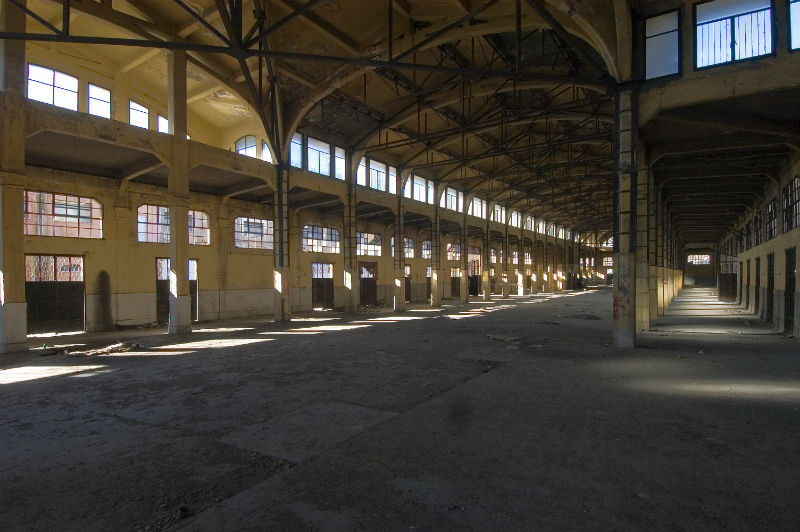
A triple-net lease (also called a triple-N or an NNN lease) is a type of commercial lease that specifies who is responsible for which rental expenses. The “who” in this context refers the landlord and the tenant. Obviously the tenant is always required to pay rent, but who is responsible for the other compulsory building expenses? Things like insurance, utilities, property taxes, cleaning services, maintenance fees, and structural repairs can add-up rather quickly. Determining who is responsible for these non-rent expenses is precisely what the triple-net lease—or any “net” lease for that matter—tries to accomplish.
For first-time commercial renters, one thing to keep in-mind is that commercial leases are different from residential leases. While both are legally-binding agreements between landlords and tenants, their provisions and language will vary dramatically. In other words, the commercial lease will physically look different from a residential agreement, oftentimes longer with more conditions and unfamiliar jargon.
Less obvious—but arguably more important—however, is the fact that commercial leases can be highly-negotiable contracts. While residential leases tend to be ridged, commercial agreements have plenty of room for compromise and negotiation. This is particularly true when determining which party will cover “net” expenses and other non-rent costs.
Talk to a lawyer about your commercial lease
“Net” Leases and the Various Types of Commercial Leases
In the context of commercial real estate, a “net” is essentially another word for a non-rent expense. Thus a “net lease” is an agreement that requires the tenant to pay various non-rent building expenses in addition to their usual rent. These building expenses can take many forms but are commonly categorized into three main “nets”: property taxes, building maintenance, and insurance.
The vast majority of commercial leases are structured such that the tenant is responsible for partial payment of one, two, or three of these nets. The question the becomes: which nets must I pay? Remember, in the context of commercial real estate the three main nets are property taxes, building maintenance, and insurance. To this end, most leases are structured in terms of these three expenditures:
- Triple Net Lease: the tenant is responsible for all three nets (insurance, maintenance, and taxes), but may not be responsible for larger structural repairs.
- Double Net Lease: the tenant is responsible for two nets (insurance and property taxes), but not maintenance fees or structural repairs.
- Single Net Lease: the tenant is responsible for one net (property tax), not maintenance fees, insurance, or structural repairs.
- Absolute Gross Lease: the tenant is not responsible for any of the three nets, only the rent—however, the renting rate is typically set higher to cover the building expenses.
By far, the most common of these structures is the triple-net lease, where the tenant is responsible for the partial payment of all three nets. Importantly, the tenant usually isn’t required to pay these costs in-full, as they are split among other renters in the complex and/or the landlord.
Talk to a lawyer about your commercial lease
Advantages and Disadvantages of the Triple-Net Lease
On the surface, it may seem like a triple-net lease is unfavorable for renters, while a gross lease is the most tenant-friendly agreement. This isn’t necessarily true, as it largely depends on the tenant’s type of business, the size and condition of the commercial space, and the personal preferences of the tenant.
One great advantage of a triple-net lease is the increased amount of property control for tenants. Since the tenant is covering maintenance and other operating expenses, they play a larger part in the daily management of the property. If they wish to remodel or renovate, they typically have the freedom to do so. This can give the tenant a feeling of property ownership, while they are of-course only renting.
Likewise, rental rates in a triple-net lease tend to be less than the rates in absolute gross leases. This is because in a gross lease agreement, the only expense the tenant is responsible for is rent. Unsurprisingly, landlords will increase the price of “rent” in these situations to compensate for various other building costs, which may include—among other expenses— insurance, maintenance, and taxes.
The obvious disadvantage to the triple-net agreement is the financial obligation. Tenants are responsible for each of the three nets, and the costs are largely variable. For instance, while tax and insurance expenses are somewhat predictable, maintenance expenses can fluctuate dramatically and oftentimes unexpectedly. For this reason, the condition of the building is an important consideration before signing a triple-net lease, as you’ll likely be the one paying for the upkeep.
Talk to a lawyer about your commercial lease
Is the Triple-Net Best for You?
The answer to this question really depends on your type of business, the size/condition of the rental space, and your personal preferences. One thing to always keep in-mind: these leases can (and oftentimes should) be negotiated. Just because the landlord claims to have a triple-net lease doesn’t’ necessarily mean that stipulations can’t be made. Remember, these are flexible contracts, and the “Net Lease” terminology is anything but definitive.
If often suggested to consult an experienced legal professional before signing a commercial lease. A strong, attorney-reviewed agreement will provide protection for both parties. Neither the tenant nor the landlord wants litigation, and a clearly-written lease will avoid lengthy or stalemated disputes.
 May 28, 2019
May 28, 2019

